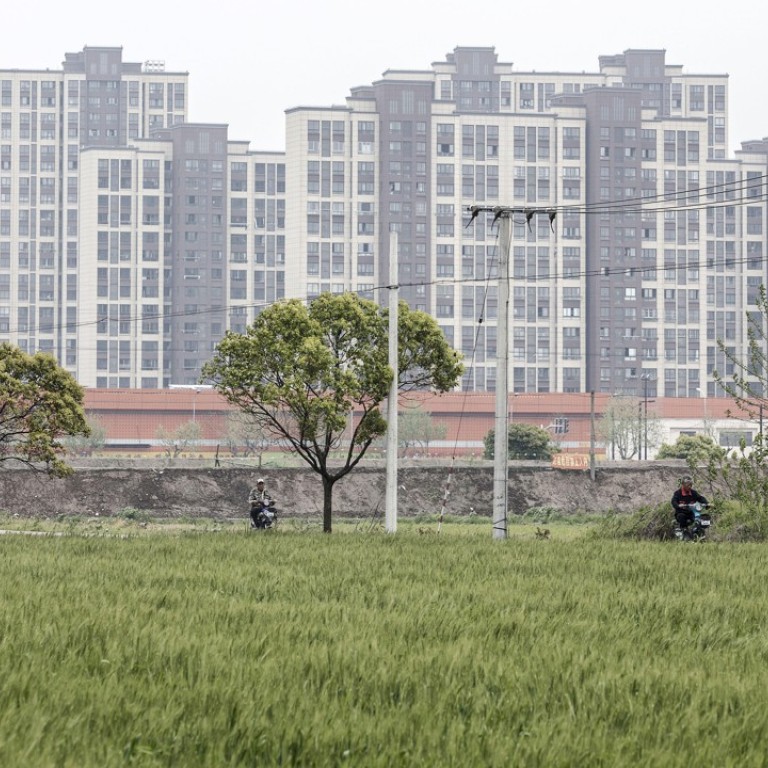
Chinese regulators tighten lending to property developers via trust company loans
The China Banking Regulatory Commission has stepped up inspections of trust companies in an apparent move to tighten lending to home builders
Mainland regulators are tightening one of the last funding channels available to home builders under the nation’s shadow banking system, stepping up scrutiny on trust companies in an effort to curtail lending to the overheated real estate sector.
The China Banking Regulatory Commission (CBRC) will scrutinise violations in real-estate financing at trust companies, the China Securities Journal reported on May 23.
Citing a leaked document, the report said that officials will check whether trust companies are helping developers to circumvent CBRC-imposed leverage caps by offering additional debt or equity financing to developers.
On May 24 the CBRC issued a statement saying that it had given a special check list for its on-site inspectors but no formal policy document had been released. The CBRC routinely dispatch staff to financial institutions to check their compliance, and an ad hoc check list is used to guide their inspection priorities.
Industry insiders said the check list illustrated concerns that developers were using borrowed money to acquire land.

China’s trust companies are financial firms that have a flexible charter and combine elements of banks and asset managers, according to the Brookings Institution.
Yuan Jiwei, an analyst with Huarong Trust, told the Post that the check list used by the CBRC officials indicate that the regulator is concerned about financing for the purpose of land acquisition.
Many trusts have engaged in land financing despite a ban on such lending by regulators, the executive said.
In late 2008, the CBRC banned trust companies from lending to developers unless they acquired four certificates.
But the restrictions were eventually loosened when the property market softened, dragging down the overall economy.
In recent years, according to industry insiders, trust companies have teamed up with asset managers such as private equity funds to offer a complicated mix of equity and debt financing to developers. In many cases the loans were disguised as equity, under a structure where the borrowers promised a fixed return to lenders.
“The regulation tightening is expected to shrink trust companies’ real estate business, and force them to concentrate on real equity investment,” said Shuai Guorang, an analyst with Usetrust, an industry consultancy.
During the past two years bonds have displaced loans by trust companies as a mainstream financing channel for developers, aside from bank loans, after regulators eased rules on developers issuing corporate bonds from 2015.
But following the epic rally in the property market, the securities regulator reimposed in October a moratorium on bond financing. In February the restrictions were broadened to ban asset managers from channelling funds to developers in 16 key cities.
Developer’s funding woes were compounded by the Chinese central banks stipulation that banks’ outstanding mortgage growth in the first quarter cannot exceed that of the fourth quarter last year. In addition, since April the National Development and Reform Commission halted approval for developers to issue offshore notes.
These moves brought trusts companies into focus as the last remaining legitimate financing channel. Trust companies have raised 67.7 billion yuan (US$9.87 billion) so far this year through 285 real-estate trust schemes, with an average yield of 6.84 per cent, on par with same period last year, according to Usetrust.
“Under heightened scrutiny developers are unlikely to borrow funds to buy plots, and the leverage level will be reduced, said Shuai.
“Aside from new trust schemes, attention should also be paid to existing ones, which face default risk as developers face strained cash flows.”

